The Fine Arts club of Tamilnadu College of Engineering aims at identifying the various hidden talents of our students/staffs and to bring them out. It provides an environment for the education, creation, performance and celebration of arts. It encourages and brings out the artistic capabilities of students in the field of Music, Dance, Drama, Visual Arts and other cultural activities.
An Event of Religious Festival (Pongal, Ramzan, Christmas) is the most awaited and major attraction of Fine arts Club. Religious Festival is an intra-collegiate cultural competition in which more than 800 students competes. One auditorium in the main campus of the institution with a seating capacity of 2000 and a green room and Four Air conditioned seminar Halls in various department blocks are available for organizing cultural programmes. Besides, major cultural events are organized in the Open air theatre which has a seating capacity of 5000. The College team has won prizes in various intercollegiate level competitions. Religious Festival also invites guests from the world of music, art, theatre etc. The events which are organized by the club includes Rangoli, Mehandi, Cartooning, Paint the face, Art from waste, Dance, Fireless cooking, Musical Chair, Thug of War, Water Filling, Pot Breaking, Orchestra, Elocution, Recitation, Tamil and English Verse writing and skit.
| S.NO | MONTH | NAME OF THE EVENT |
|---|---|---|
| 1 | September | Music Club Inauguration |
| 2 | October | Radio City Super Singer Audition |
| 3 | November | Off stage Event |
| 4 | December | Christmas Celebration & Music Hunt |
| 5 | January | Pongal Celebration |
| CLUB INCHARGE: | Dr.M.SEETHAPATHI – HoD/CIVIL |
|---|---|
| PRESIDENT: | Mr.A.SANJAY – CSE |
| VICE-PRESIDENT: | Ms.S.DEEPAK - MECH |
| SECRETARY: | Ms.S.SASI KEERTHIKA - CSE |
| JOINT SECRETARY: | Ms.A.ABINAYA - ECE |
| TREASURER: | Mr.V.CHANDRAN - CSE |
| EXECUTIVE MEMBERS: |
|
The Music Club aims to promote taste and talent amongst students by organizing concerts, events and performances. It offers practice spaces and a wide array of instruments which are safely stored. An opportunity for students to come together and discuss music and a chance to perform and showcase their talents in intra college events throughout the year. Meetings are held once a week for each instrumental or vocal group. Singers and instrument players meet on different days of the week. Apart from these meetings, other meetings are scheduled based on the individual needs of students.
All the available music resources to provide national programs that recognize and support music students' performance and success, offer music educator training and professional development, and deliver tools and resources to participants and their communities that will assist them in supporting music education by promoting awareness of music’s impact on student growth and achievement.
Music for All’s mission is to create, provide and expand positively life-changing experiences through music for all. We believe that music and arts education is a core to students’ education and must be available to all students. Music for All is an advocate for music and arts education. Our educational programs support the efforts of music teachers on College levels, as well as provide positively life-changing experiences for students.
| S.NO | MONTH | NAME OF THE EVENT |
|---|---|---|
| 1 | September | Music Club Inauguration |
| 2 | October | Radio City Super Singer Audition |
| 3 | November | Off stage Event |
| 4 | December | Christmas Celebration & Music Hunt |
| 5 | January | Pongal Celebration |
| CLUB INCHARGE: | Dr.M.SEETHAPATHI – HoD/CIVIL |
|---|---|
| PRESIDENT: | Mr.A.SANJAY – CSE |
| VICE-PRESIDENT: | Ms.S.DEEPAK - MECH |
| SECRETARY: | Ms.S.SASI KEERTHIKA - CSE |
| JOINT SECRETARY: | Ms.A.ABINAYA - ECE |
| TREASURER: | Mr.V.CHANDRAN - CSE |
| EXECUTIVE MEMBERS: |
|
A Green Campus is a place where Eco friendly practices and education combine to promote sustainable and eco-friendly practices in the campus. The green campus concept offers an institution the opportunity to take the lead in redefining its environmental culture and developing new paradigms by creating sustainable solutions to environmental, social and economic needs of mankind.
Go Green Club’ which is dedicated to spread awareness among the people regarding conservation and protection of the environment by organizing green events. The committee also promotes green lifestyle among the people by making them aware about the importance and necessity of green environment.
Tamilnadu College of Engineering is striving to develop its institution on a self –sustainable basis in the areas of power, water and cleanliness. The faculty, staff and students are contributing collectively to develop an eco-friendly sustainable campus and disseminate the concept of eco-friendly culture inside the campus and to the nearby community and wherever possible.
Environmental justice for every faculty, Staff and Students at College Level.
The Go Green Initiative works together with Faculty, Staff and Students to protect them from adverse environmental conditions. To secure access to nutritious food and conserve natural resources to maintain sustainable eco friendly environment.
ACTIVITIES In order to nurture a sense of responsibility and bonding with Mother Nature amongst the legal fraternity, the Go Green Club of Tamilnadu College of Engineering organised “Green Raksha Bandhan” on June 05 of every year. The members of the club, faculty and the general public tied eco-friendly rakhis made from recycled paper prepared by our students to the flora in the campus and pledged to protect it.
| S.NO | MONTH | NAME OF THE EVENT |
|---|---|---|
| 1 | September | Club Inauguration |
| 2 | October | Campus Cleaning |
| 3 | November | Awareness Programme on “CLEAN ENVIRONMENT’ for Villages |
| 4 | December | Campus Cleaning |
| 5 | January | A Programme on “Best Out Waste” |
| CLUB INCHARGE: | Dr.M.SEETHAPATHI – HoD/CIVIL |
|---|---|
| PRESIDENT: | Mr.A.RAVIKUMAR – CIVIL |
| VICE-PRESIDENT: | Ms.S.SUSMA - ECE |
| SECRETARY: | Mr.A.DANARAM - CSE |
| JOINT SECRETARY: | Mr. K.LOKESHWARI - ICE |
| TREASURER: | Mr.P.BASKARAN - MECH |
| EXECUTIVE MEMBERS: |
|
Red Ribbon Club is a movement started by the Government of India in schools and colleges through which, students will spread awareness over HIV/AIDS. It motivates and guides to the students community to extend their kind help towards developing healthy life styles, donating blood to all the needy by promotion of Regular voluntary blood donation. It also emphasises on prevention of drug abuse and drunken driving. The Red Ribbon Club at Tamilnadu College of Engineering came into effect from 10.07.2018 it was inaugurated by Mr. RVM. KUMANAN, District Supervisor, District AIDS Prevention & Control unit, Coimbatore, in the presence of the then Principal Dr. M KARTHIKEYAN The subsequent programme of RRC was being conducted on each year.
Dr. M.KARTHIKEYAN- Principal
RADHAKRISHNAN G-RRC Coordinator (TCE)
| PRESIDENT | SABARI S |
|---|---|
| VICE-CHAIRMEN | DEEPAK S |
| SECRETARY | ARULVENDHAN A |
| JOINT SECRETARY | ABINAYA |
This club was initially sparked by the Department of Mechanical Engineering and originated with the support of student's interest towards awareness and the need of the society.H20 Club is the art of connecting yourself to the society in need, to sense their emptiness. The club urges to help the people in need and make the society a better place to live in. The more you give, the more you receive.
Dr. M.KARTHIKEYAN- Principal
P.SABARINATH -H20 Coordinator (TCE)
| CHAIRMEN | NANDHAKUMAR |
|---|---|
| VICE-CHAIRMEN | JANANI |
| SECRETARY | SANTHOSH |
| JOINT SECRETARY | POORNIMA |
The purpose of the committee is to monitor the discipline of the students in campus and to provide solutions to the problems occurring among the students and untoward incidents if any. The committee will submit its recommendations to the Principal and Management for further action.
The Main Objective of the Committee is to maintain the Discipline among the students and to make them understand the social etiquette and Decorum of the Institution. The committee follows certain procedures to attain its Objective as mentioned below.
Mrs.T.Arachelvi, Asso.Prof/ECE
Dr.M.Duraisamy, Teaching Assistant
| Student president | Mr.G.Ganeshamoorthy -ECE |
|---|---|
| Student vice president | Ms.S.Yazhini -CSE |
| Student secretary | Ms.M.Madhushri -ECE |
| Student joint secretary | Mr.C.V.Arun -MECH |
The Language Club of our College plays a vital role in enhancing the Communicative Skills of the students. To enrich the skills of the students the Language Club offers TOEFL Coaching classes. TOEFL( The Test of English as a Foreign Language) is a test which measures students English language skills to see if they are good enough to pursue various abroad programmes. Activity based teaching is followed, which helps the students to combine both Verbal and Non- Verbal Communication. Assessments are used to analyse the performance of each student. It is an online exam conducted about 30 to 40 times per year.The test consists of Reading, Listening, Speaking and Writing. The TOEFL iBT test is given in English and administered via the Internet. The students are attending weekly classes and they are encouraged to exhibit to meet future challenges in our Language Club.
The Communication Laboratory has been set up with spacious environment with a Area of 100 Sq.m to impart individuals with English Language Competence. It is well equipped with Computers with high-end CPU features for students benefit. The Softwares used are general and domain specific Software. The Communication Laboratory has been provided with all modern accessories to learn Phonetics, Accent Practices, Stress Modulation, Grammar etc., and also with modern instruments such as digital Cameras, Video Cameras, handy Cameras etc., which enables the students to achieve hands on training. This Lab provides many tasks based on the TOEFL.
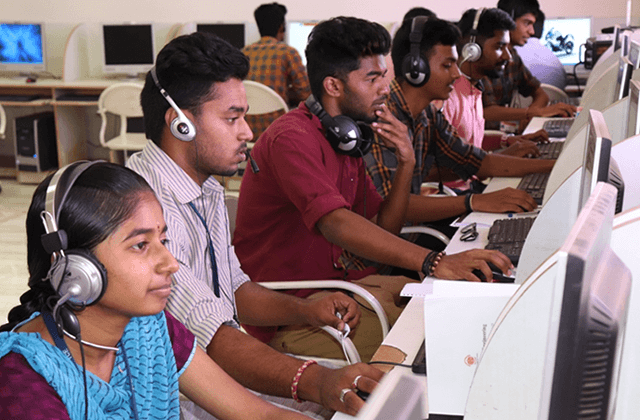
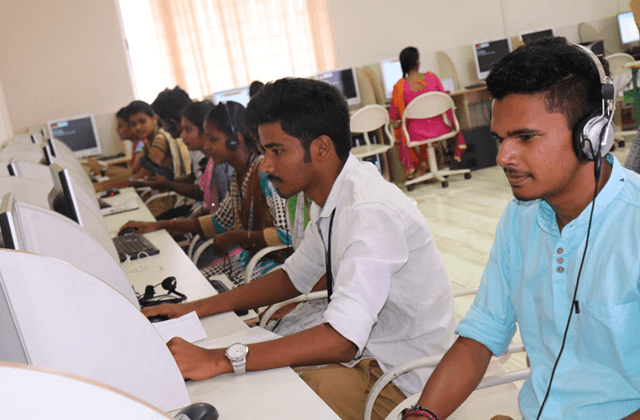
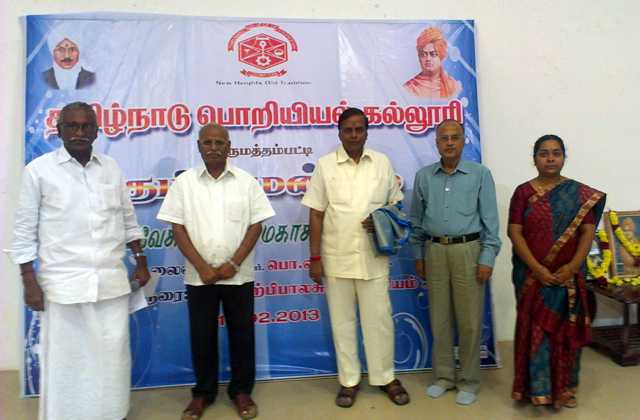
The overall aim of National Service Scheme as envisaged is to give an extension dimension to the higher education system and orient the student youth to community service while they are studying in educational institution. The reason for the formulation of this objective is the general realization that the college students have a tendency to get alienated from the village/slum masses which constitute the majority of the population of the country. The educated youth who are expected to take the reins of administration in future are found to be unaware of the problems of the village/slum community and in certain cases are indifferent towards their needs and problems. Therefore it is necessary to arouse the social conscience of the students, and to provide them an opportunity to work with the people in the villages and slums. It is felt that their interaction with the common villagers and slum dwellers will expose them to the realities of life.
Popularly known as NSS, the scheme was launched in Gandhiji’s Centenary year, 1969. Aimed at developing student’s personality through community service. NSS, is a voluntary association of young people in Colleges, Universities and at +2 level working for a campus-community linkage.
The cardinal principle of the NSS programme is that it is organised by the students themselves, and both students and teachers through their combined participation in community service, get a sense of involvement in the tasks of nation building.
The motto or watchword of the National Service Scheme is: ‘NOT ME BUT YOU’. This reflects the essence of democratic living and upholds the need for selfless service and appreciation of the other person’s point of view and also to show consideration for fellow human beings. It underlines that the welfare of an individual is ultimately dependent on the welfare of society on the whole. Therefore, it should be the aim of the NSS to demonstrate this motto in its day-to-day programme.
The motto or watchword of the National Service Scheme is ‘NOT ME BUT YOU’. This reflects the essence of democratic living and upholds the need for selfless service and appreciation of the other person’s point of view and also to show consideration for fellow human beings. It underlines that the welfare of an individual is ultimately dependent on the welfare of society on the whole. Therefore, it should be the aim of the NSS to demonstrate this motto in its day-to-day programme.
NSS was formally launched on 24th September, 1969, the birth centenary year of the Father of the Nation. Therefore, 24 September is celebrated every year as NSS Day with appropriate programmes and activities.
Under this, students undertake various programmes in the adopted villages, college/school campuses and urban slums during weekends or after college hours
Under this, camps of 10 days duration are organised in adopted villages or urban slums during vacations with some specific projects by involving local communities. 50% NSS volunteers are expected to participate in these camps.
As stated above, NSS volunteers undertake various activities in adopted villages and slums for community service. Duration of these services is 120 hours. The NSS units organize the regular activities as detailed below:
(i) Orientation of NSS volunteers:To get the NSS volunteers acquainted with the basics of NSS programmes, 20 hours are allocated for their orientation through lectures, discussions, field visits and audio-visuals etc.
NSS Regular Activities: The NSS volunteers may be involved in the projects undertaken for the benefit of the institution and students concerned. Such projects cover development of play grounds, laying of gardens, tree plantation in the premises, awareness programmes on drug-abuse, AIDS, population education and other projects. The NSS volunteers may work on campus projects for not exceeding 30 hours in a year
The remaining 70 hours will be utilized for community service on the projects in adopted villages/urban slums independently or in collaboration with others in this field, as detailed below:
(a) Institutional work: The students may be placed with selected voluntary organisations working for the welfare of women, children, aged and disabled outside the campus.
(b) Rural Project: The rural projects generally include the working of NSS volunteers in adopted villages for eradication of illiteracy, watershed management and wasteland development, agricultural operations, health, nutrition, hygiene, sanitation, mother and child care, family life education, gender justice, development of rural cooperatives, savings drives, construction of rural roads, campaign against social evils etc.
(c) Urban Projects: In addition to rural projects other include adult education, welfare of slum dwellers, training in civil defense, traffic control, setting up first-aid posts, work in hospitals, orphanages, destitute home, environment, population education, drug, AIDS awareness, and income generation projects etc. Professional and technical institutions having NSS may have to design appropriate programmes for the community based on the needs.
(d) Natural calamities & National Emergencies: The NSS units are expected to utilize the services of NSS volunteers at the time of natural calamities and national emergencies for mobilizing public support and rendering necessary assistance to the authorities in rescue, relief and rehabilitation. In such emergencies and calamities the Programme Officers are expected to take the initiative and offer the services of the NSS units and its volunteers to assist the administration.
(e) National Days and Celebrations : The National Service Scheme programmes also include the celebration of National days. The purpose of such a provision is to celebrate such occasions in a befitting manner
(f) National Programmes:In the development perspective of any nation, certain programmes assume special relevance in view of problems existing or anticipated. In our country, three such programmes have been launched. They are the Mass Programme of Functional Literacy, AIDS Awareness Programme and Sustainable Development with emphasis on Watershed Management & Wasteland Development. It is pertinent to mention here that NSS Volunteers have come forward with zeal to make these programmes a great success.
National Service Committee was launched in the year 1959-60 under the chairmanship of Dr. C. D. Deshmukh, had recommended that National Service for a period of 9 months to a year should be made compulsory before a student enters the university or employment. The Saiyidain committee (1961) Appointed by the ministry of education did not favour compulsion and recommended National or Social Service for a minimum period of 12 weeks on a voluntary basis.
The National Service Scheme was launched in 1969. It aims at the involvement mainly of undergraduate students on a voluntary basis in various activities of social serviced and national development which while making a contribution to socio-economic progress would also provide opportunities to the students to understand and appreciate the problems of the communities, awaken social consciousness and inculcate in them sense of dignity of labour. There has been a great deal of enthusiasm among the students in various programmers taken up under the scheme. At the same time, there has been a demand from several quarters that opportunity should be provided to the youth going out of the universities and colleges to engage themselves on a whole time basis for a specific period in activities of social and national service. Some attempts in this direction have been made in some states during last few years.
The post-independence era was marked by an urge for introducing social service for students, both as a measure of educational reform and as a means to improve the quality of educated man-power. The University Grants Commission headed by Dr.Radhakrishnan recommended introduction of national service in the academic institutions on a voluntary basis with a view to developing healthy contacts between the students and teachers on the one hand and establishing a constructive linkage between the campus and the community on the other hand.
The idea was again considered by the Central Advisory Board of Education (CABE) at its meeting held in January, 1950. After examining the various aspects of the matter and in the light of experience of other countries in this field, the Board recommended that students should devote some time to manual work on a voluntary basis and that the teachers should also associate with them in such work. In the draft First Five Year Plan adopted by the Government of India in 1952, the need for social and labour service for students for one year was further stressed. Consequent upon this, layout and social service camps, campus-work projects, village apprenticeship scheme etc., were put into operation by various educational institutions. In 1958, the then Prime Minister Pandit Jawaharlal Nehru in his letter to the Chief Ministers, mooted the idea of having social service as a prerequisite for graduation. He further directed the Ministry of Education to formulate a suitable scheme for introduction of national service into the academic institutions.
In 1959, a draft outline of the scheme was placed before the Education Minister’s Conference. The Conference was unanimous about the urgent need for trying out a workable scheme for national service. In view of the fact that education as it was imparted in schools and colleges, left something to be desired and it was necessary to supplement it with programmes which would arouse interest in the social and economic reconstruction of the country. It was viewed that if the objectives of the scheme were to be realised, it was essential to integrate social service with the educational process as early as possible. The Conference suggested the appointment of a committee to work out details of the proposed pilot project. In pursuance of these recommendations, a National Service Committee was appointed under the Chairmanship of Dr.C.D.Deshmukh on August 28, 1959 to make concrete suggestions in this direction. The committee recommended that national service for a period of nine months to a year may be made compulsory for all students completing high school education and intending to enroll themselves in a college or a university. The scheme was to include some military training, social service, manual labour and general education. The recommendations of the Committee could not be accepted because of its financial implications and difficulties in implementation.
In 1960, at the instance of the Government of India, Prof.K.G.Saiyidain studied national service by students implemented in several countries of the world and submitted his report under the title ” National Service for the Youth ” to the Government with a number of recommendations as to what could be done in India to develop a feasible scheme of social service by students. It was recommended that national or social service should be introduced on a voluntary basis and extended as widely as possible with a provision for rich and varied programmes of activities. It was also recommended that social service camps should be open to students as well as non-students within the prescribed age group for better interrelationship.
The Education Commission headed by Dr.D.S.Kothari (1964-66) recommended that students at all stages of education should be associated with some form of social service. This was taken into account by the State Education Ministers during their conference in April 1969 and they recommended that at the university stage, students could be permitted to join the National Cadet Corps (NCC) which was already in existence on a a voluntary basis and an alternative to this could be offered to them in the form of a new programme called the National Service Scheme (NSS). Promising sportsmen, however, should be exempted from both and allowed to join another scheme called the National Sports Organisation (NSO), in view of the need to give priority to the development of sports and athletics.
The Vice-Chancellor’s Conference in September,1967 welcomed this recommendation and suggested that a special committee of Vice-Chancellors could be set up to examine this question in detail. In the statement of national policy on education of the Government of India, it was laid down that work experience and national service should be an integral part of education. In national service should be an integral part of education. In may, 1969, conference of the student’s representatives of the universities and institutions of higher learning convened by the Ministry of Education and the University Grants Commission also Unanimously declared that national service could be a powerful instrument for national integration. It could be used to introduce urban students to rural life. Projects of permanent value could also be undertaken as a symbol of the contribution of the student community to the progress and upliftment of the nation.
The details were soon worked out and the Planning Commission sanctioned an outlay of Rs.5 crores for National Service Scheme (NSS) during the Fourth Five Year Plan. It was stipulated that the NSS programme should be started as a pilot project in select institutions and universities.
On September 24, 1969, the then Union Education Minister Dr.V.K.R.V.Raio, launched the NSS programme in 37 universities covering all States and simultaneously requested the Chief Ministers of States for their cooperation and held. It was appropriate that the programme was started during the Gandhi Centenary Year as it was Gandhiji who inspired the Indian Youth to participate in the movement for Indian independence and the social uplift of the down-trodden masses of our nation. The programme is implemented effectively in the State of TamilNadu since its inception.
| S.NO | MONTH | NAME OF THE EVENT |
|---|---|---|
| 1 | Augest | Augest 15,celebration |
| 2 | October | Youth Awakening Day |
| 3 | November | Campus cleaning |
| 4 | December | Blood donation camp |
| NSS INCHARGE: | Mr.L.PERIYASAMY AP/CIVIL, Mrs.A.S.RAJASREE-AP/CIVIL |
|---|---|
| PRESIDENT: | Mr.A.MUTHUKUMAR-CIVIL |
| VICE-PRESIDENT: | Ms.S.SHARMILA-ECE |
| SECRETARY: | Mr.S.GOBINATH-CSE |
| JOINT SECRETARY: | Ms.M.MADHU SRI-ECE |
| TREASURER: | Mr.R.ARUNKUMAR-MECH |
| EXECUTIVE MEMBERS: |
|
| Name of the programme | “Youth Awakening day” |
|---|---|
| Date | 15th Oct 2023 |
| Venue | TCE College campus |
| Name of NSS Coordinator | Mr.L.Periysamy,AP/Civil |
| Name of the Chief guest | Dr.M.Karthikeyan, Principal, Tamilnadu college of Engineering. |
| No of Participants | 50 |
| Aim | To make a better future for the country by motivating the youth and spreading the ideas. |
Dr M.Karthikeyan, Principal, TCE, welcomed the gathering and spoke about the significance of “Youth awakening day” celebration to recall the insightful thoughts to empower the youth and to transform India as a prosperous nation. He explained the life history of Dr.A.P.J Abdul Kalam and various struggles he faced during his school and college days and the way he reached excellence in life irrespective of multifarious hardships.
Further, he shared some of the ideas from popular book “Wings of Fire” with the participants. Significant visions of the missile man like alleviating poverty through education, need for technological advancements, and transformation of rural India were discussed in his talk.
Youth rally is conducted in our college campus to motivate students. The celebrations of the “Youth Awakening Day” came to its end when everyone stood for the National Anthem, as a silent salute to the great missile man.
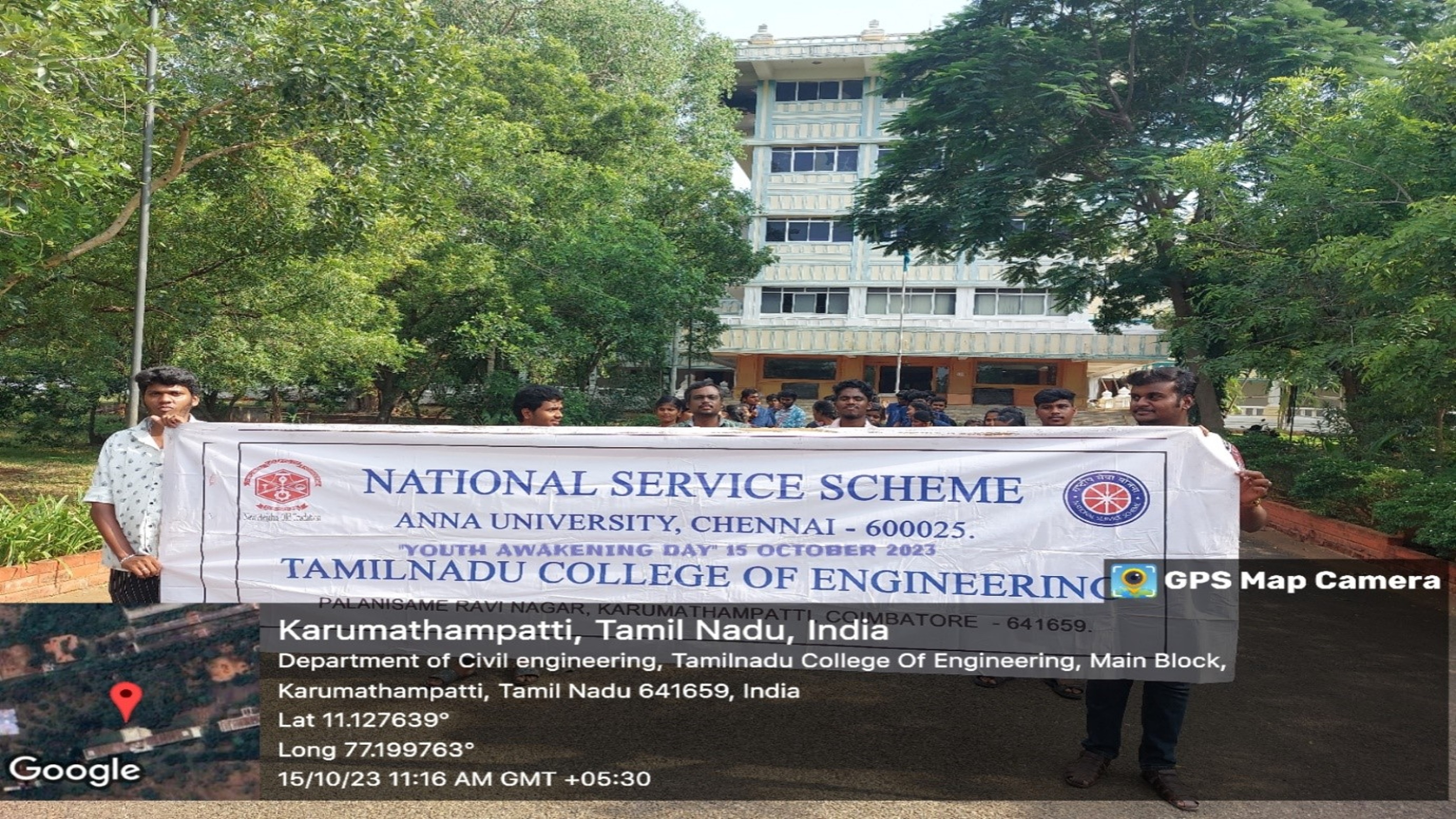
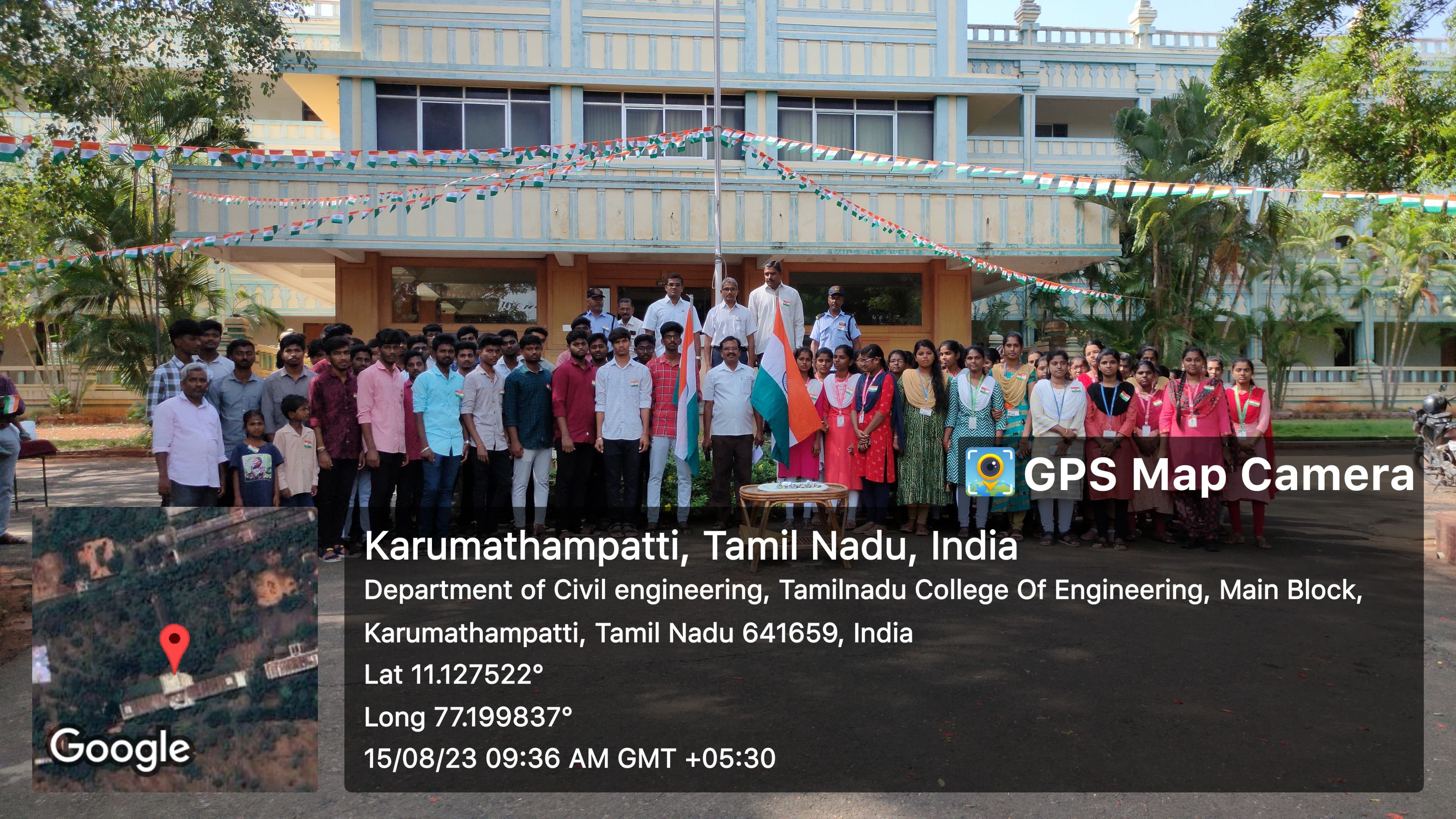
The Annual camps are known as Special Camps. Camps are held annually, funded by the government of India, and are usually located in a rural village or a city suburb. Volunteers are involved in such activities as:
There are no predefined or preassigned tasks; it is left up to the volunteers to provide service in any way that is feasible. Camps typically last between a week and 10 days, although camps for shorter periods are also conducted by our TCE NSS club.
The NSS of TCE organized a Tree Plantation programme in TCE Auditorium side on 13th April 2018. The Plantation inaugurated by our NSS volunteers, NSS programme officer. The volunteers have actively participated and planted 100 trees in TCE.
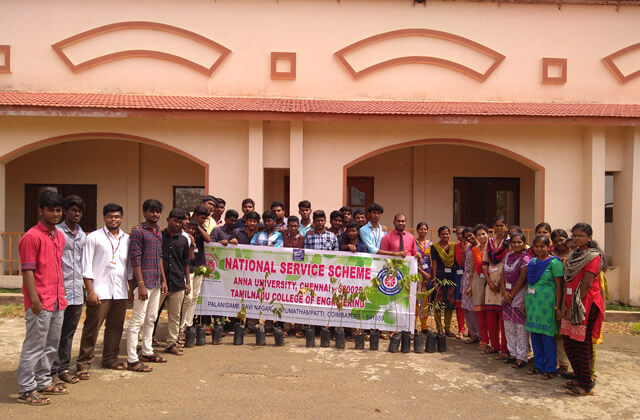
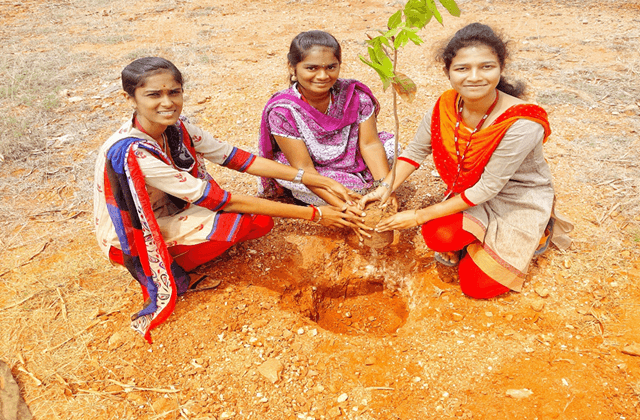
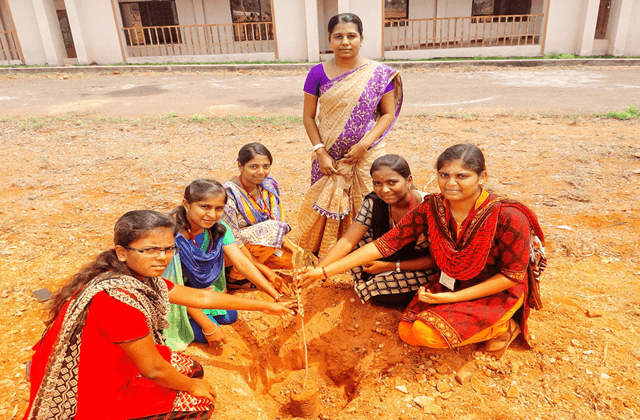
NSS units of TCE is organized a Blood donation camp in association with Upgraded Primary Health Centre, Somanur and Coimbatore Medical College Hospital, Coimbatore on 23.03.2018 From 10.00 am to 3.00 pm at TCE campus. Our college Principal, Chief operations, Faculty members and students are given 60 units of blood in that camp to save the life of human beings.
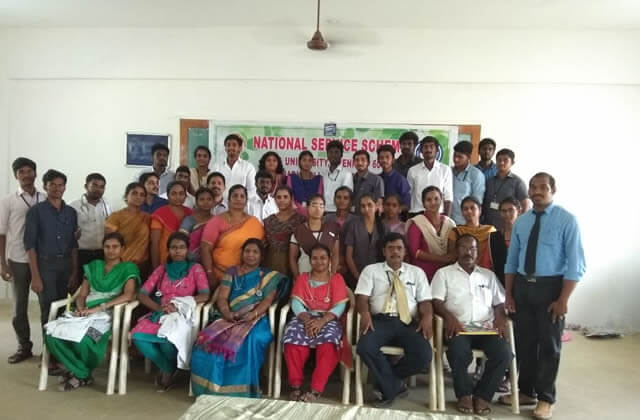
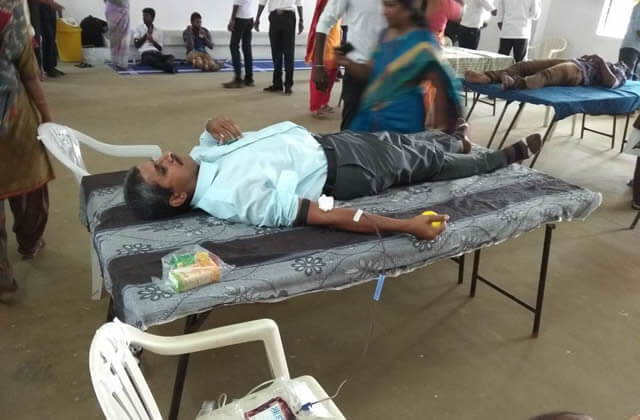
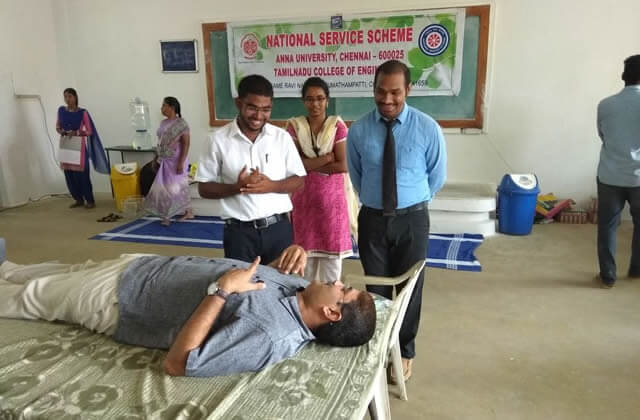
In our college 69th Republic Day of our country was celebrated on 26th January 2018. 50 NSS Volunteers with faculty members are participated in that programme. The programme started with the prayer song. Our Principal Dr.M.Karthikeyan hoisted the flag and delivered the Independence day address. On that day the Oath was taken by the volunteers with faculty members are followed by the Principal.
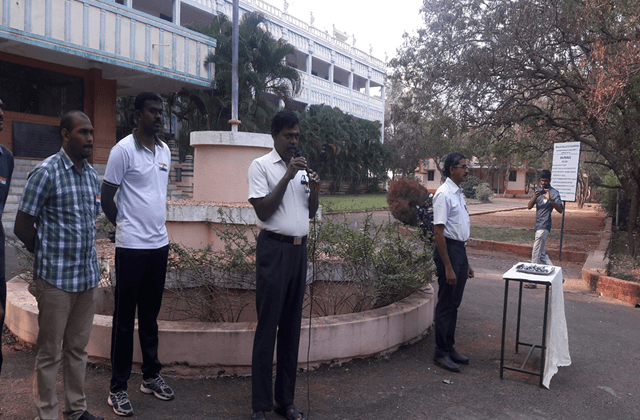
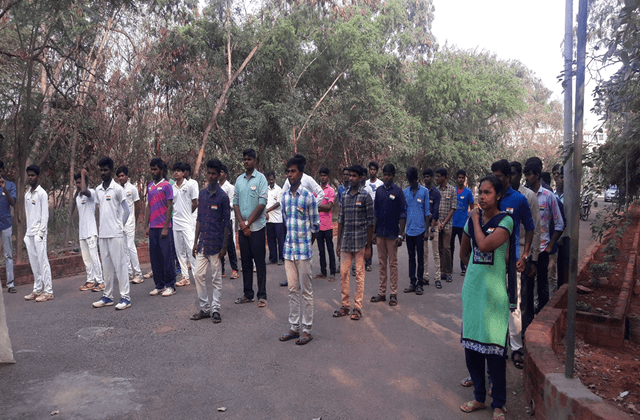
Rotaract originally began as a Rotary International youth program in 1968 at Charlotte North Rotary Club in Charlotte, North Carolina, United States, and has grown into a major Rotary-sponsored organization of over 9,539 clubs spread around the world and 219,397 members. It is a service, leadership, professional and community service organization for young men and women between the ages 1830. Rotaract focuses on the development of young adults as leaders in their communities and workplaces. Clubs around the world also take part in international service projects, in a global effort to bring peace and international understanding to the world.
“Rotaract” stands for “Rotary in Action”, although the name originally comes from a combination of “Rotary” and “Interact” (International + Action), the high school level program created by Rotary International in 1962.
Most Rotaract activities take place at the club level. Rotaract clubs hold formal meetings, usually every two weeks, which feature speakers, special outings, social activities, discussions or visits to other clubs. Club members get together on designated days for service project work, social events, or professional/leadership development workshops.
The purpose of Rotaract is to provide an opportunity for young men and women to enhance the knowledge and skills that will assist them in personal development, to address the physical and social needs of their communities, and to promote better relations between all people worldwide through a framework of friendship and service.
To be eligible for membership, prospective members must be 1830 years of age, show that they are committed to Rotaract, and show that they are of good standing in the community. After being approved by the club, prospective members are ‘inducted’ to become members, also known as ‘Rotaractors’.
Rotaract Club of Tamilnadu College of Engineering was installed on 30th September 2016. Our club was sponsored by Rotary Club of Tirupur North. Our club installed with the new team of office bearers by
Rotaract in TCE has three Rotaract clubs with three distinct goals and objectives with over all 300 members in TCE Rotaract. The ambition of our club is to find leadership skills in students and to develop it. The clubs in TCE under Rotaract are listed below,
Rotaract TCE, Rotaract Techies and Rotaract Women's club in association with Rotary IMA Blood bank, Tirupur organized a blood donation camp on 6th October 2023 in college campus. Around 53 students and faculty members actively participated in the camp and donated blood. Principal sir distributed the certificates to the donors at the end of the event.
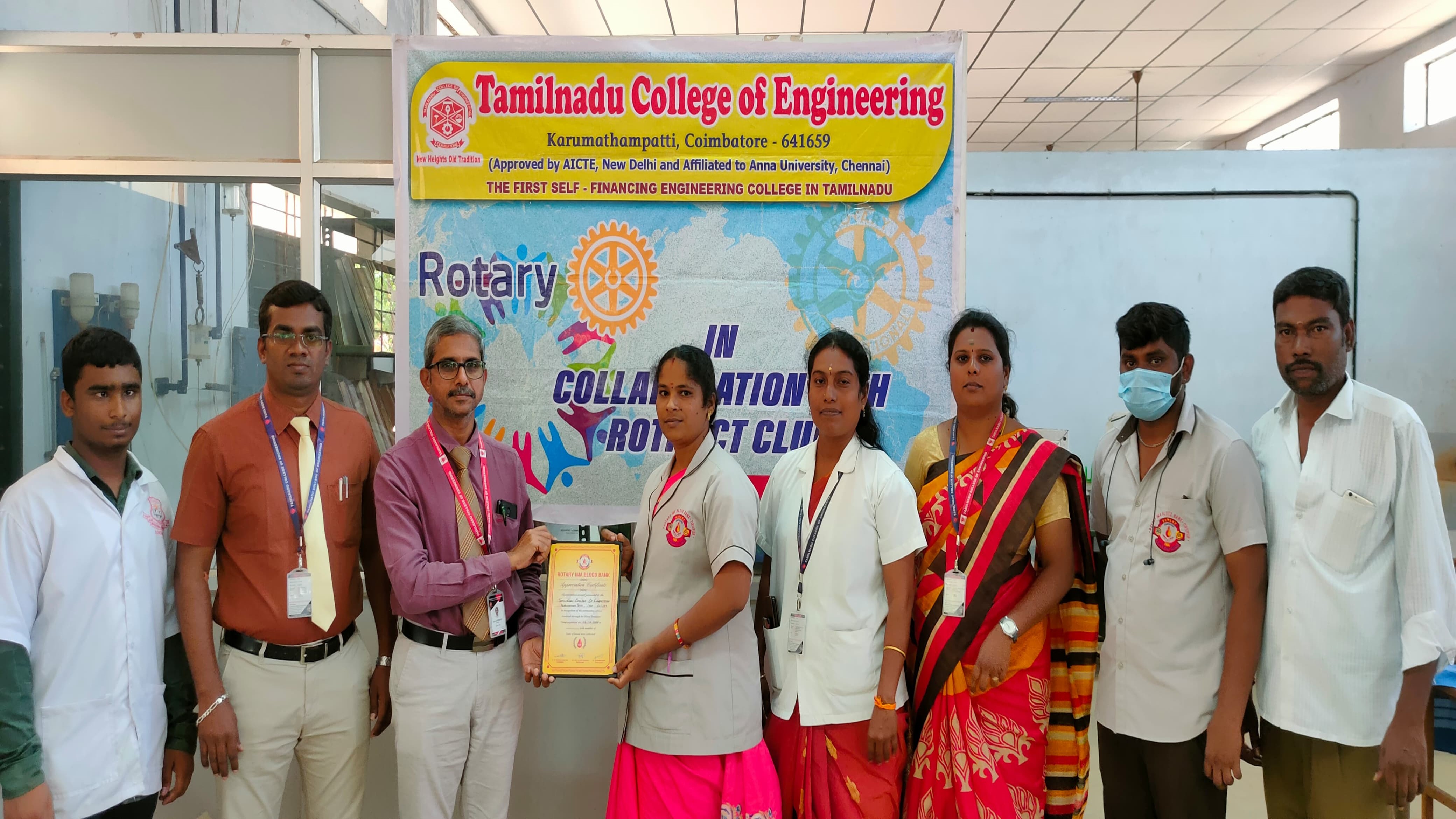
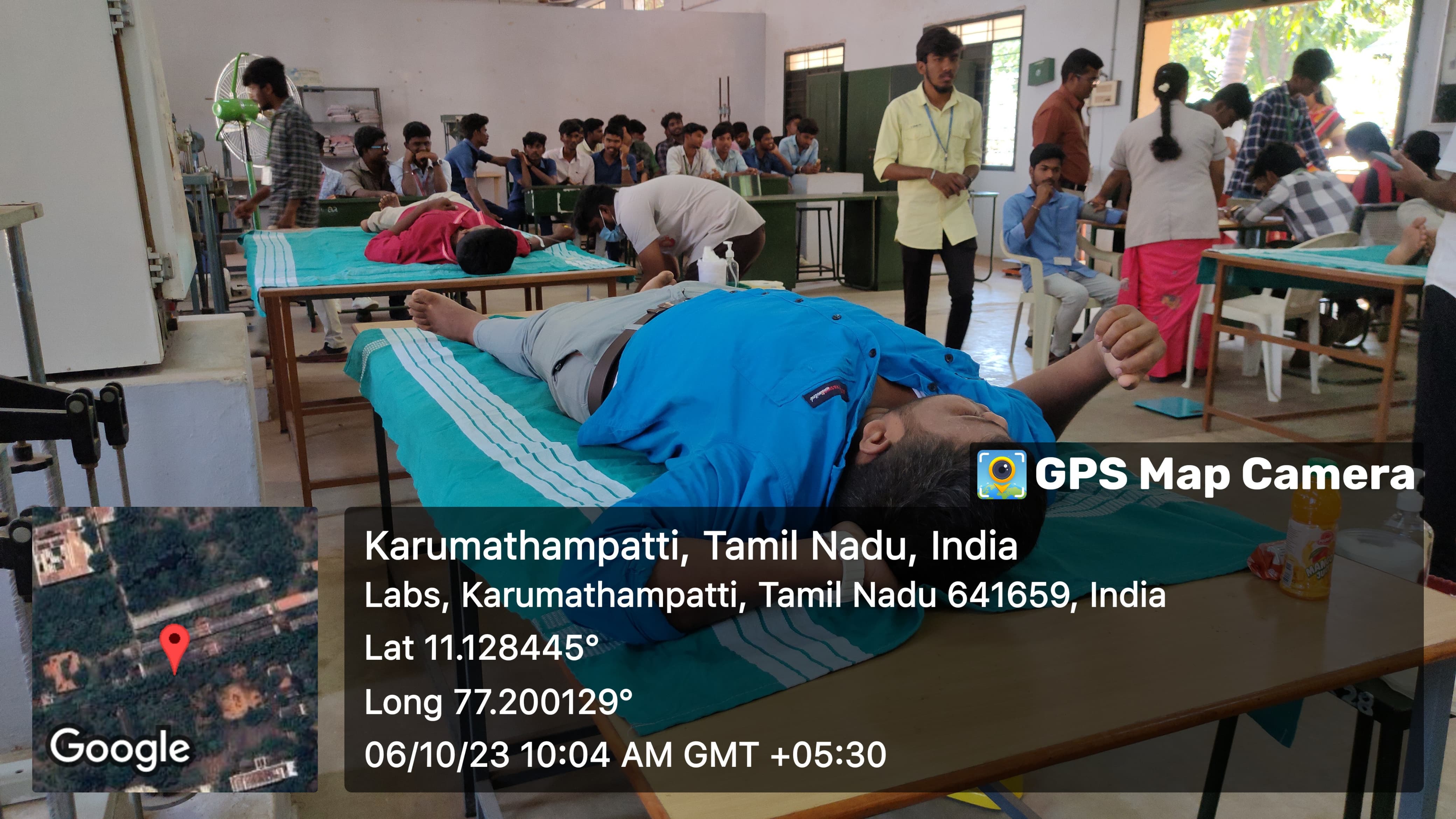
POSITIONS in Rotaract Club:
ROTARACT EVENTS ORGANIZED
The primary mission of the thulir club is providing the orphaned, destitute unloved, needy, handicapped persons, with a lone, love, happiness, physical, mental emotional and spiritual nourishment, the highest level of education possible, and a hope for a bright future.
The vision of the club is to one day have a self-sustaining community consisting of a children’s home, orphanage, elderly persons, place of worship, hospital, library, park, play fields, and other facilities that help a community to succeed our vision is to one day establish such communities all over the world.
| S.NO | MONTH | Orphanage Name |
|---|---|---|
| 1 | August | Sree ramanaseva ashram |
| 2 | September | Tirupur school of deaf |
| 3 | October | Anugraha orphanage |
| 4 | November | Sree ramanaseva ashram |
| 5 | December | Tirupur school of deaf |
| 6 | January | Anugraha orphanage |
| 7 | February | Sree ramanaseva ashram |
| 8 | March | Tirupur school of deaf |
| 9 | April | Anugraha orphanage |
| 10 | May | Sree ramanaseva ashram |
| 11 | June | Tirupur school of deaf |
| 12 | July | Anugraha orphanage |
| CLUB INCHARGE: | Dr.M.SEETHAPATHI – HoD/CIVIL |
|---|---|
| PRESIDENT: | Mr.V.CHANDRAN – CSE |
| VICE-PRESIDENT: | Ms.S.SHARMILA - ECE |
| SECRETARY: | Mr.T.SARVESHKUMAR - CSE |
| JOINT SECRETARY: | Mr.E.PAVITHRA - CSE |
| EXECUTIVE MEMBERS: |
|
| S.NO | MONTH | DATE OF VISIT | ORPHANAGE NAME | SPONSER AMOUNT |
|---|---|---|---|---|
| 1 | May 09-07-17 | Sree ramanaseva ashram | Rs.14580 | |
| 2 | June | 23-07-2017 | Tirupur school of deaf | Rs.15140 |
| 3 | July | 20-08-2017 | Anugraha orphanage | Rs.11925 |
| 4 | August | 8-10-2017 | Sree ramanaseva ashram | Rs.14025 |
| 5 | September | 27-10-2017 | Tirupur school of deaf | Rs.14925 |
| 6 | October | 25-12-2017 | Sree ramanaseva ashram | Rs.15000 |
| 7 | November | 31-12-2017 | Tirupur school of deaf | Rs.15000 |
| 8 | December | 18-02-2018 | Anugraha orphanage | Rs.15100 |
| 9 | December | 18-02-2018 | Anugraha orphanage | Rs.15100 |
| 10 | February | 14-04-2018 | Sree ramanaseva ashram | Rs.15150 |
| 11 | March | 22-04-2018 | Tirupur school of deaf | Rs.15075 |
| 12 | April | 3rd Sunday | Anugraha orphanage | Rs.15075 |
| S.NO | MONTH | DATE OF VISIT | ORPHANAGE NAME | SPONSER AMOUNT |
|---|---|---|---|---|
| 1 | APRIL | 05-06-16 | SEED ORPHANAGE | RS.17920 |
| 2 | MAY | 17-07-16 | SREE RAMANASEVA ASHRAM | RS.16580 |
| 3 | JUNE | 24-07-16 | ANUGRAHA ORPHANAGE | RS.14500 |
| 4 | JULY | 28-08-16 | SEED ORPHANAGE | RS.11820 |
| 5 | AUGUST | 02-10-16 | SREE RAMANASEVA ASHRAM | RS.15140 |
| 6 | SEPTEMBER | 27-10-16 | ANUGRAGA ORPHANAGE | RS.15140 |
| 7 | OCTOBER | 19-02-16 | SREE RAMANASEVA ASHRAM | RS.15160 |
| 8 | NOVEMBER | 26-02-17 | TIRUPUR SCHOOL FOR DEAF | RS.15180 |
| 9 | DECEMBER | 05-03-17 | ANUGRAGA ORPHANAGE | RS.15180 |
| 10 | JANUARY | 02-04-17 | SREE RAMANASEVA ASHRAM | RS.15200 |
| 11 | FEBRUARY | 09-04-17 | ANUGRAGA ORPHANAGE | RS.15200 |
| 12 | MARCH | 23-04-17 | TIRUPUR SCHOOL FOR DEAF | RS.15260 |
| 13 | APRIL | 21-05-17 | ANUGRAGA ORPHANAGE | RS.15220 |

The aim of this society focuses to promote life and health through training and education on safety, primary health care and healthy living, to encourage community service through training and education and to promote technical support for the development of youth programmes, fund-raising, identification of material and human resources. 228 students are the members of this society.Youth Red Cross (YRC) Society is a voluntary humanitarian organization having a network of over 700 branches throughout the country. The seven fundamental principles of YRC are Humanity, Impartiality, Neutrality, Independence, Voluntary Service ,Unity and Universality.
Red Cross Societies is the world’s largest humanitarian organization, providing assistance without discrimination as to nationality, race, religious beliefs, class or political opinions.
To inspire, encourage, facilitate and promote at all times all forms of humanitarian activities by National Societies, with a view to preventing and alleviating human suffering, and thereby contributing to the maintenance and promotion of human dignity and peace in the world.
To develop students into globally competent and morally upright science readers, committed to build a nation through science and technology.
A student organisation that will provide relative activities and experience to its members and inculcate in them scientific values and skills that will develop them into science leader capable of protecting the environment and bring in progress to that nation.
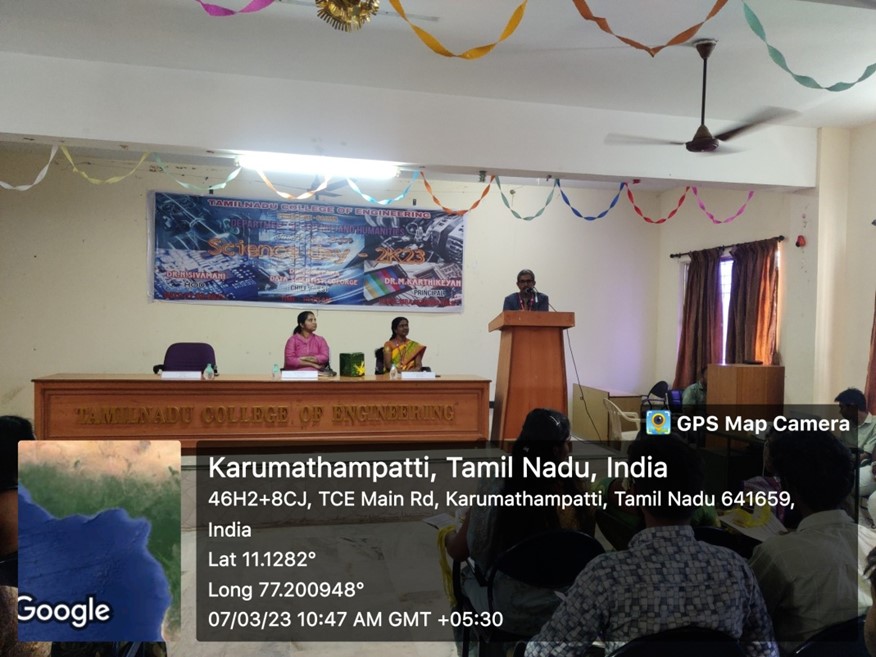
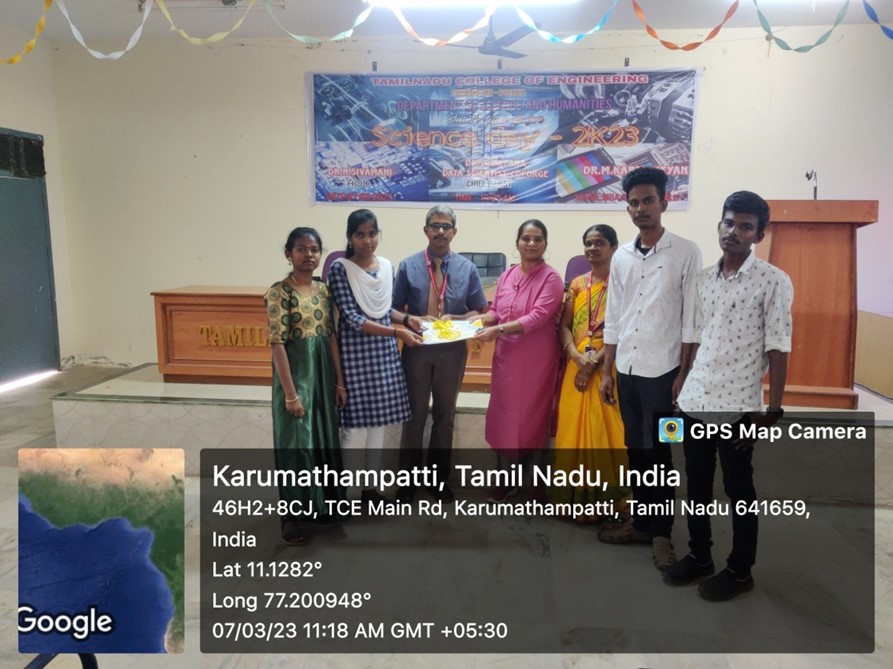
The Science Day is celebrated on 08.03.2023 in MBA Seminar Hall. Dr.V.Kalpana.the chief guest, gave a brief introduction about the significance of celebrating National Science Day on 28th February and emphasized the need to go beyond textbooks and imbibe the knowledge from all the spheres for the overall development of any pharmacist. Students collected their certificates and medal from resource person those who won in Science exhibition.
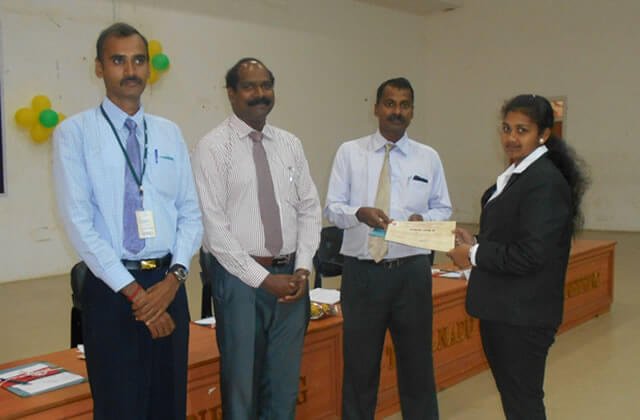
SCIENCE CLUB was inaugurated on 14th March’16. A seminar on “Today’s Science Tomorrow’s Technology” was delivered by Dr. D. David Wilson. M.A., M.Phil., Ph.D., Professor, Karunya University, Coimbatore.
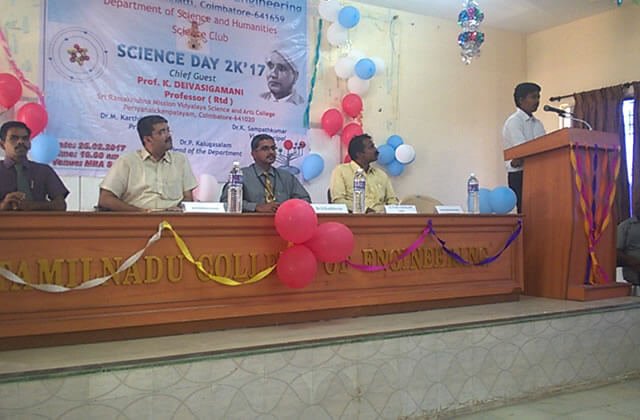
SCIENCE DAY was celebrated on 25.02.2017 and a seminar on the topic “APPLICATION OF SCIENCE IN ENGINEERING” was delivered by Prof. K. DEIVASIGAMANI, PROFESSOR(Rtd.)., RAMAKRISHNA MISSION VIDYALAYA SCIENCE AND ARTS COLLEGE, COIMBATORE.
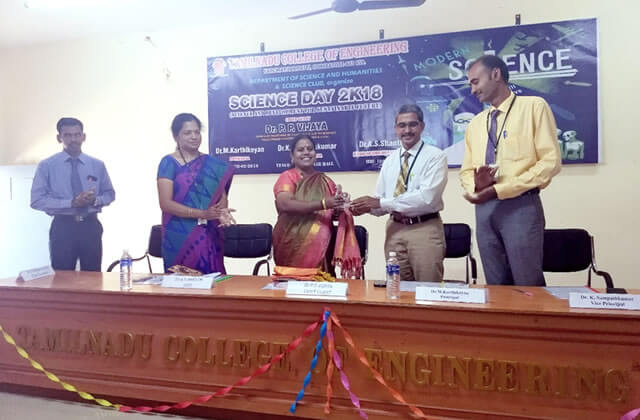
Science day was celebrated on 28.02.2018 with a quote “SCIENCE AND TECHNOLOGY FOR SUSTAINABLE DEVELOPMENT”. A seminar on the quote was delivered by Dr. P.P. VIJAYA, ASSOCIATE PROFESSOR, NANOSCIENCE AND TECHNOLOGY, BHARATHIAR UNIVERSITY.
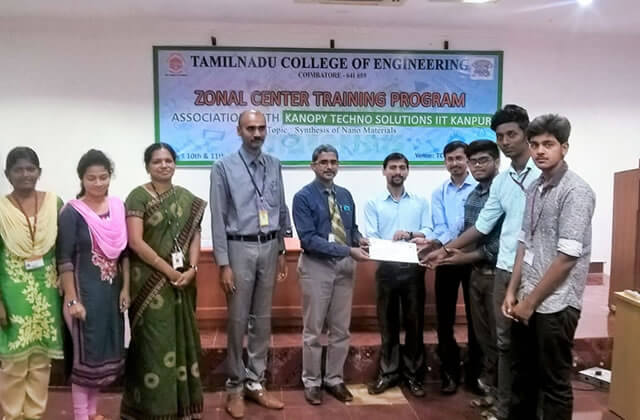
A Zonal Center Training Programme on fundamental aspects of “Nanotechnology and its association with Electrochemistry” was conducted by Department of Science and Humanities in association with KANOPY TECHNO SOLUTIONS IIT KANPUR.
| Sector | Specialization | Course coordinator | Total hours | Intake |
| Automotive | Auto Component Assembly Fitter |
Mr.Radhakrishnan | 400 | 25 |
| Automotive Service Technician (Two and Three) |
Mr.Palaniappan | 400 | 25 | |
| Lathe Operator | C.Elango | 400 | 25 | |
| Repair – Welder | Dr.P.Dharmalingam | 400 | 25 | |
| Plumbing | Municipal Water and Sewage Assessor |
L. periasamy | 240 | 25 |
| Plumber (Maintenance & Servicing) |
Dr.V.Kavimani | 320 | 25 | |
| Plumber (Welder) | Mr.Venkatesh | 300 | 25 | |
| Plumber Operations | Dr.M.Seethapathi | 350 | 25 | |
| Telecom | Network Engineer | Dr.M.Karthikeyan | 300 | 25 |
| CCE- Call Center | Mr K.Murugan | 240 | 25 | |
| Optical Fiber Technician | Dr.Latha Shanmumaga vadivu | 300 | 25 | |
| Tr. Equip App. Developer(Native) |
Dr.AS.Santhi | 250 | 25 | |
| Power | Electrician Domestic Solutions |
Mr.Sudhakar | 350 | 25 |
| Consumer Energy Meter Technician |
Mr.S.Vivek | 350 | 25 | |
| Assistant Electricity Meter Reader, Billing & Cash Collector |
Mr.M.Pradeep kumar | 200 | 25 | |
| Technician -Street Lighting Solutions(Installation &Maintenance) |
Ms.S.Saranya | 200 | 25 | |
| Electronics | DTH Set Top Box Installation & Service Technician |
Jegan Diravianath S | 300 | 25 |
| LED Light Repair Technician |
D.Yuvaraj | 360 | 25 | |
| Field Technician – Networking and Storage |
Dr.R.Sivakumar | 360 | 25 | |
| Field Technician – UPS and Inverter |
Dr.G.Saravanakumar | 300 | 25 | |
| Retail | Retail Team Leader | Mr.R.Karthikeyan | 350 | 25 |
| Logistics | Warehouse Supervisor | Dr.M.Sethupathi | 330 | 25 |
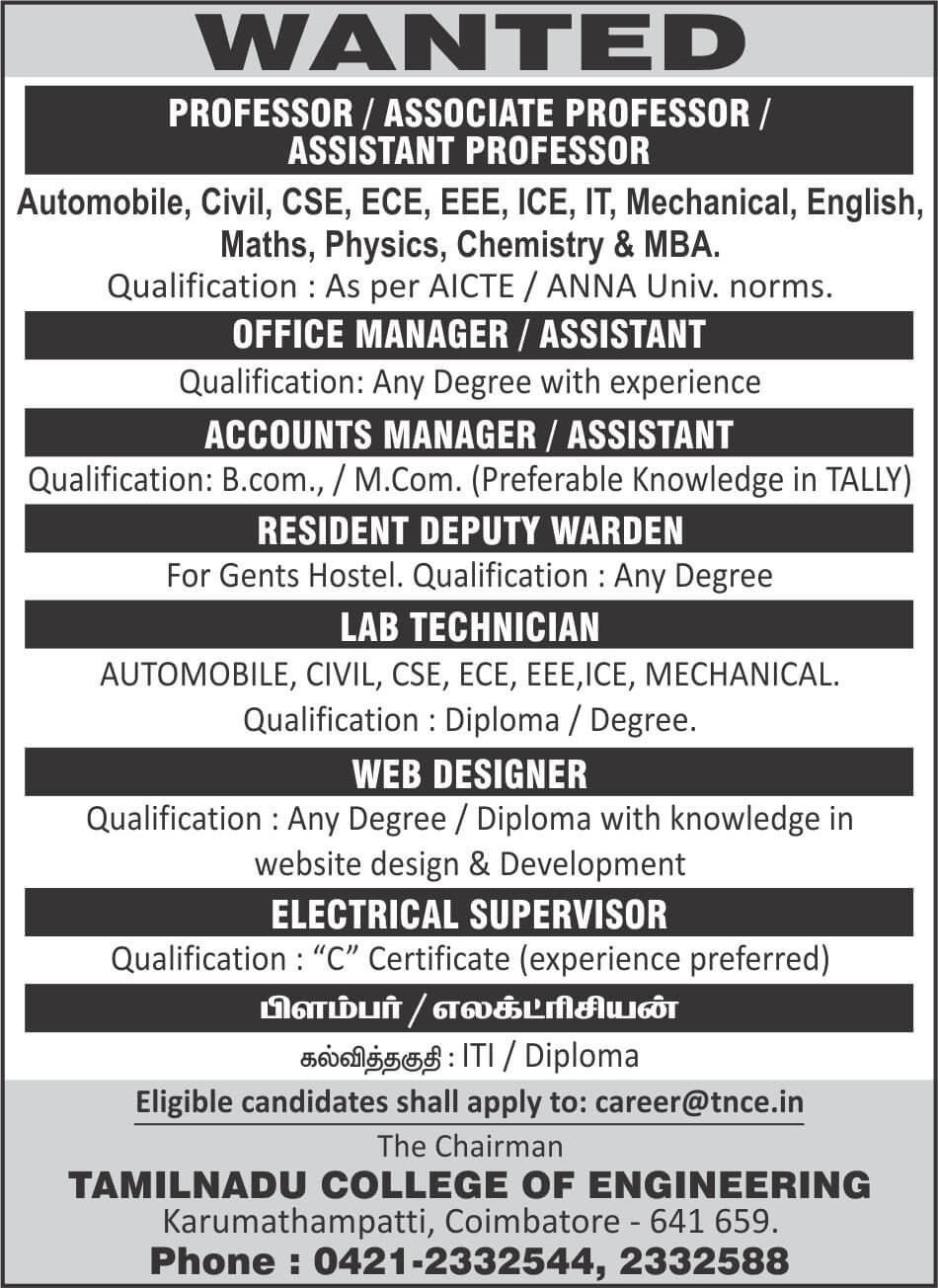
In Memory of Mr.Randeep.B who studied during 2002 in Computer Science and Engineering department of our college and later exanimated, “RANDEEP MEMORIAL BEST OUTGOING STUDENT” award for all UG departments is awarded every year from 2016 onwards.
The eligible students for this award will be identified based on their Overall Grade ,Inter College Co-curricular Events Participation & Prizes won, Extra Curricular events, Placement, Class Representative/Symposium student Chairman & Secretary, I.V student Coordinator, Library Award won, 100% Attendance, NSS/NCC/Red ribbon/ and Other club member, National Level awards, Student Membership in ISTE/ISOI/IETE and other professional bodies.
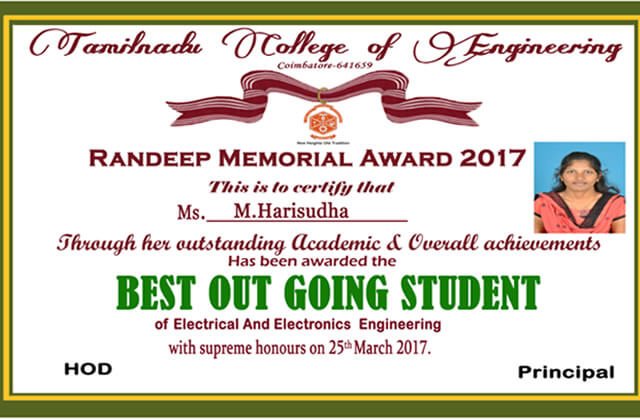
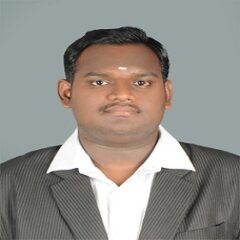



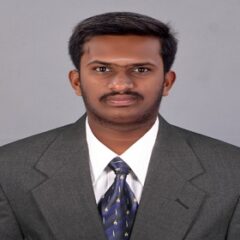

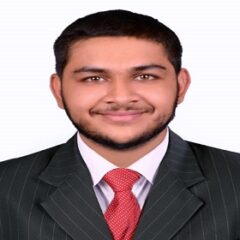
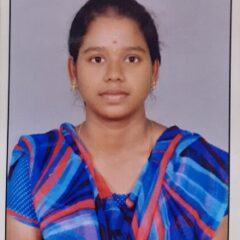
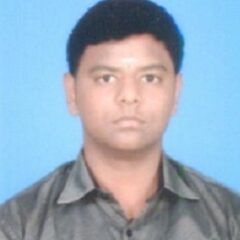
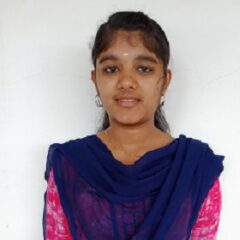
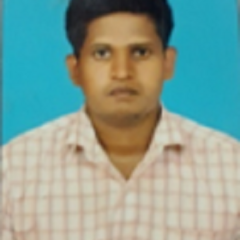
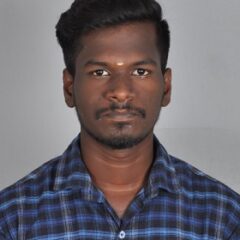

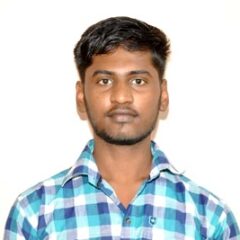
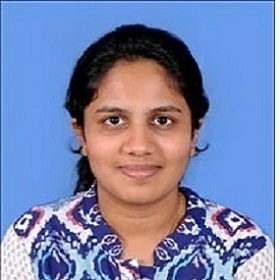
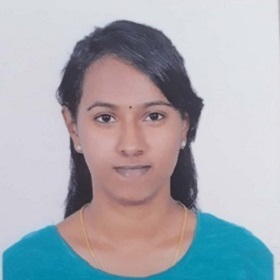
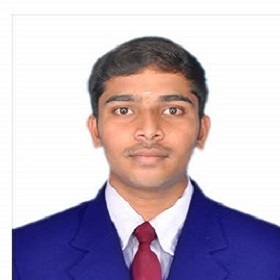
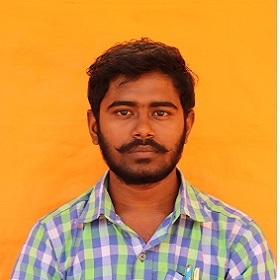
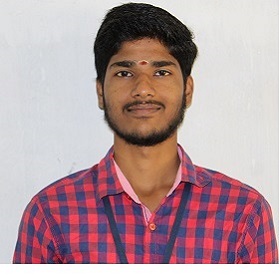
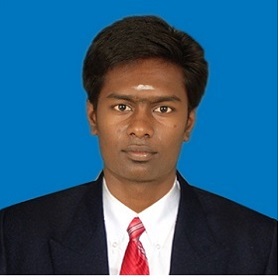
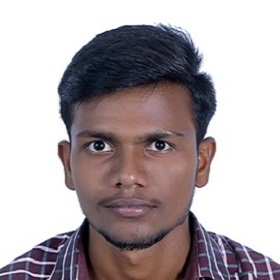
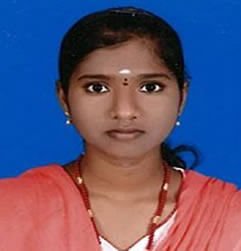
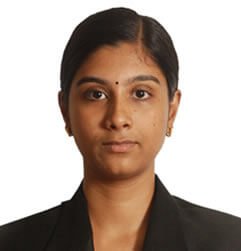
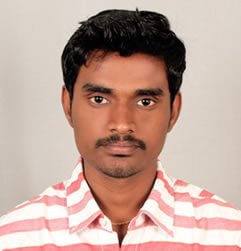
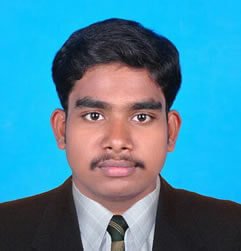
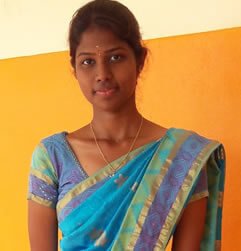
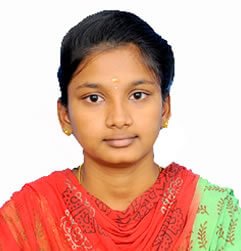
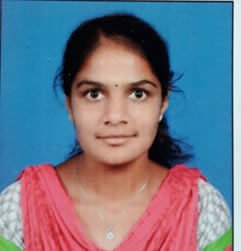
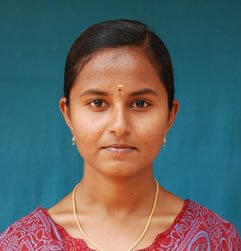
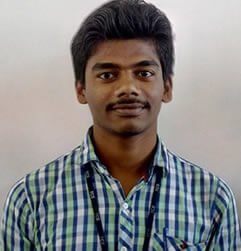
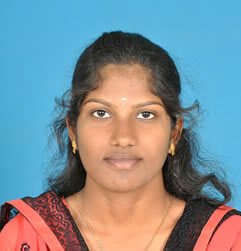
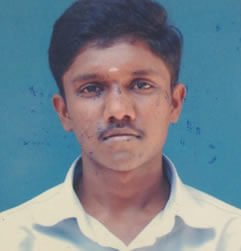
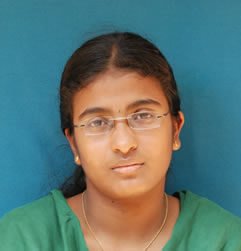
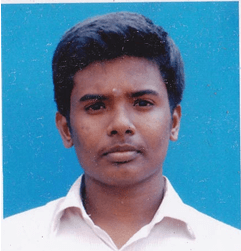
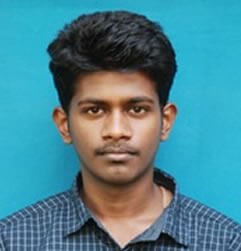
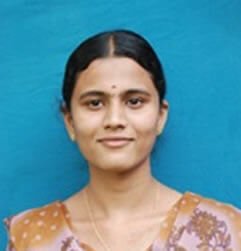
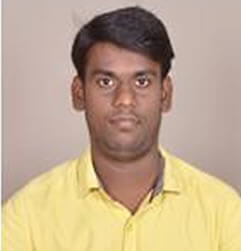
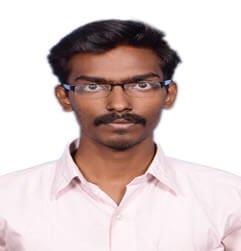
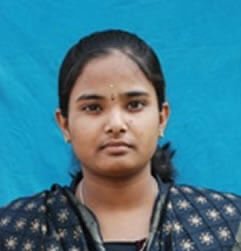
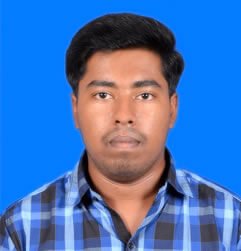
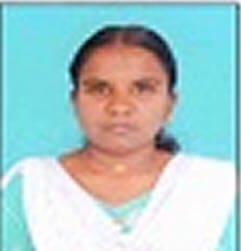
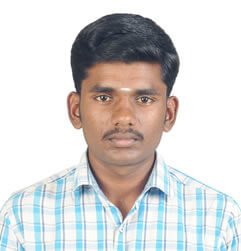
This award is sponsored by the alumni of TCE 1999 batch in the remembrance of Abdul kalam. This award is given to the most deserving student on merit basis. The awarded student is benefitted by receiving the tuition fee for all years, internship, mentoring and also project guidance.
Process for selecting the candidate
| S.NO | NAME | CLASS | YEAR OF AWARD | TOTAL AMOUNT IN RS | NAME & DESIGNATION OF THE MENTOR |
|---|---|---|---|---|---|
| 1 | R.Gokulraj | III CSE | 2024 | 20,000 | Mr Palani Vairavan |
| 2 | G.Harish | III ECE | 2024 | 20,000 | Mr Palani Vairavan |
| 3 | BalaMoorthy | II CSE | 2023 | 10,000 | Mr.Suresh |
| 4 | G.Pandiselvan | III EEE | 2023 | 5,000 | Mr palani vairavan ,Microsoft |
| 5 | T.Kalaiarasan | IV CSE | 2022 | 30,000 | Mr.Suresh |
| 6 | R.Gokulraj | I CSE | 2022 | 62,000 | Mr.Suresh |
| 7 | T.Thabidurai | II ECE | 2022 | 30,000 | Mr.Sathiyaraj |
| 8 | R.Bhuvaneswaran | II ECE | 2022 | 30,000 | Mr palani vairavan ,Microsoft |
| 9 | K.Gopu | II ECE | 2022 | 50,000 | Mr palani vairavan |
| 10 | K.Kabilan | II ICE | 2022 | 25,000 | Mr.Sathiyaraj |
| 11 | Praveen kumar | II MECH | 2018 | 20,000 | Mr.Suresh |
| 12 | Mownica | II CSE | 2017 | 20,000 | Mr.Suresh |
| 13 | Anitha | II CSE | 2017 | 20,000 | Mr.Sathiyaraj |
| 14 | Ragul V | III ECE | 2016 | 1,30.000 | Mr palani vairavan ,Microsoft |
| 15 | Ishwarya A | III EEE | 2016 | 40,000 | Mr palani vairavan |
This award is sponsored by the alumni of TCE (2002-2006) batch in the remembrance of Perunthalaivar kamarajar. This award is given to the most deserving student on merit basis. The awarded student is benefitted by receiving the tuition fee for all years, internship, mentoring and also project guidance.
Process for selecting the candidate
| S.NO | NAME | CLASS | YEAR OF AWARD | TOTAL AMOUNT IN RS |
|---|---|---|---|---|
| 1 | R.Natheesh | III ECE | 2024 | 10,000 |
| 2 | S.Sneka | III ICE | 2024 | 20,000 |
| 3 | S.Manojkumar | III Civil | 2024 | 20,000 |
| 4 | G.Poovin | III Mech | 2024 | 15,000 |
| 5 | S.Prathapraj | III EEE | 2024 | 15,000 |
| 6 | K.Dharanidaran | III Auto | 2024 | 10,000 |
The code of conduct at TAMILNADU College of Engineering, Coimbatore, aims to establish the expectations and responsibilities of all individuals within the campus. It covers a wide range of areas, including academic integrity, student behavior, dress code, use of college facilities, and ethical practices. The code emphasizes the importance of respecting fellow students, faculty members, and staff, creating an inclusive environment, and avoiding any discriminatory behavior.
The academic integrity section of the code emphasizes the importance of honest work, plagiarism-free assignments, and avoiding any form of cheating. It also outlines the consequences of any violations, including academic probation, suspension, or expulsion. The section on student behavior highlights the need to maintain discipline and decorum within the college premises. It outlines the prohibited activities, such as ragging, harassment, and substance abuse, and the consequences for engaging in such behavior.
The code also outlines the dress code for students, faculty, and staff members. It emphasizes the need for a professional appearance and avoiding any provocative or offensive clothing. The use of college facilities section outlines the rules and regulations for the use of various facilities, such as the library, computer labs, and sports facilities. It emphasizes the need to maintain cleanliness and avoid any damage to the property.